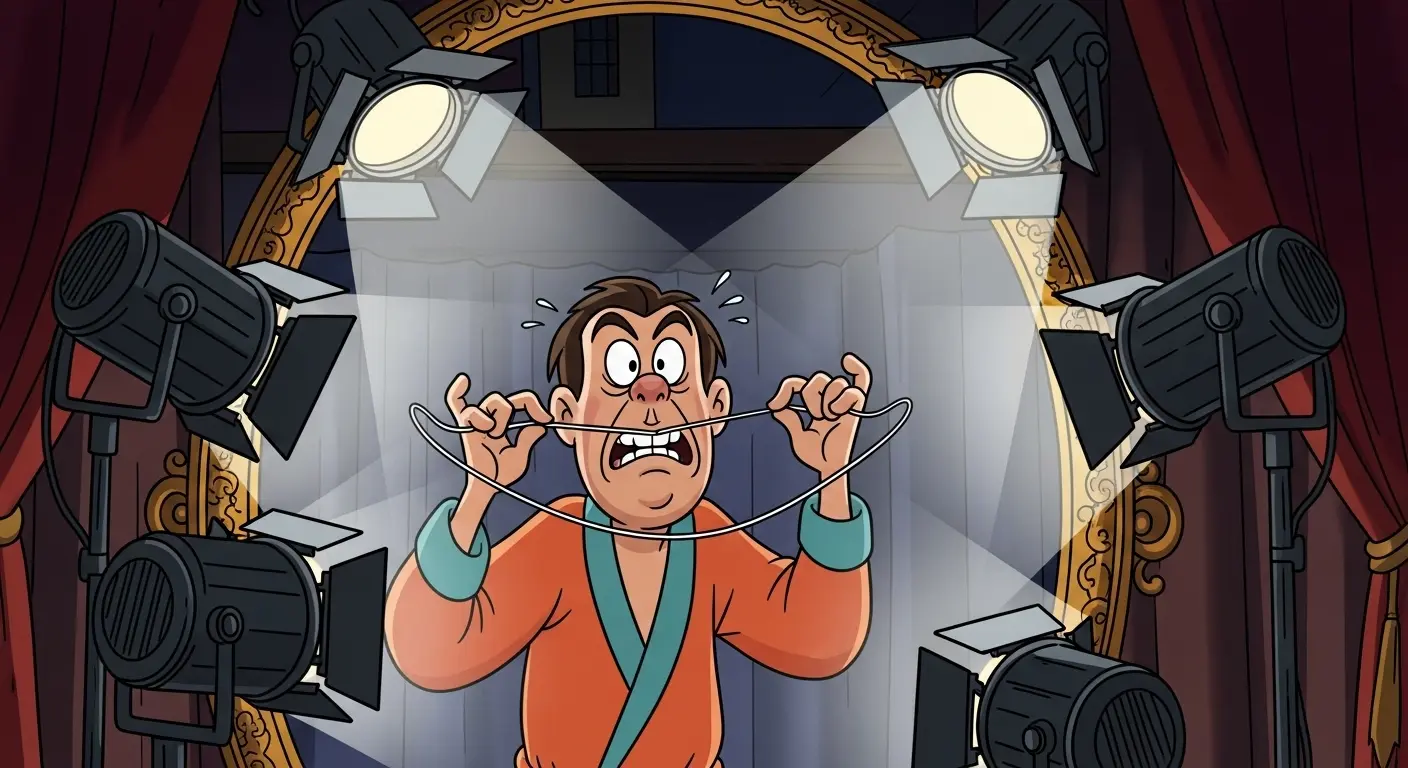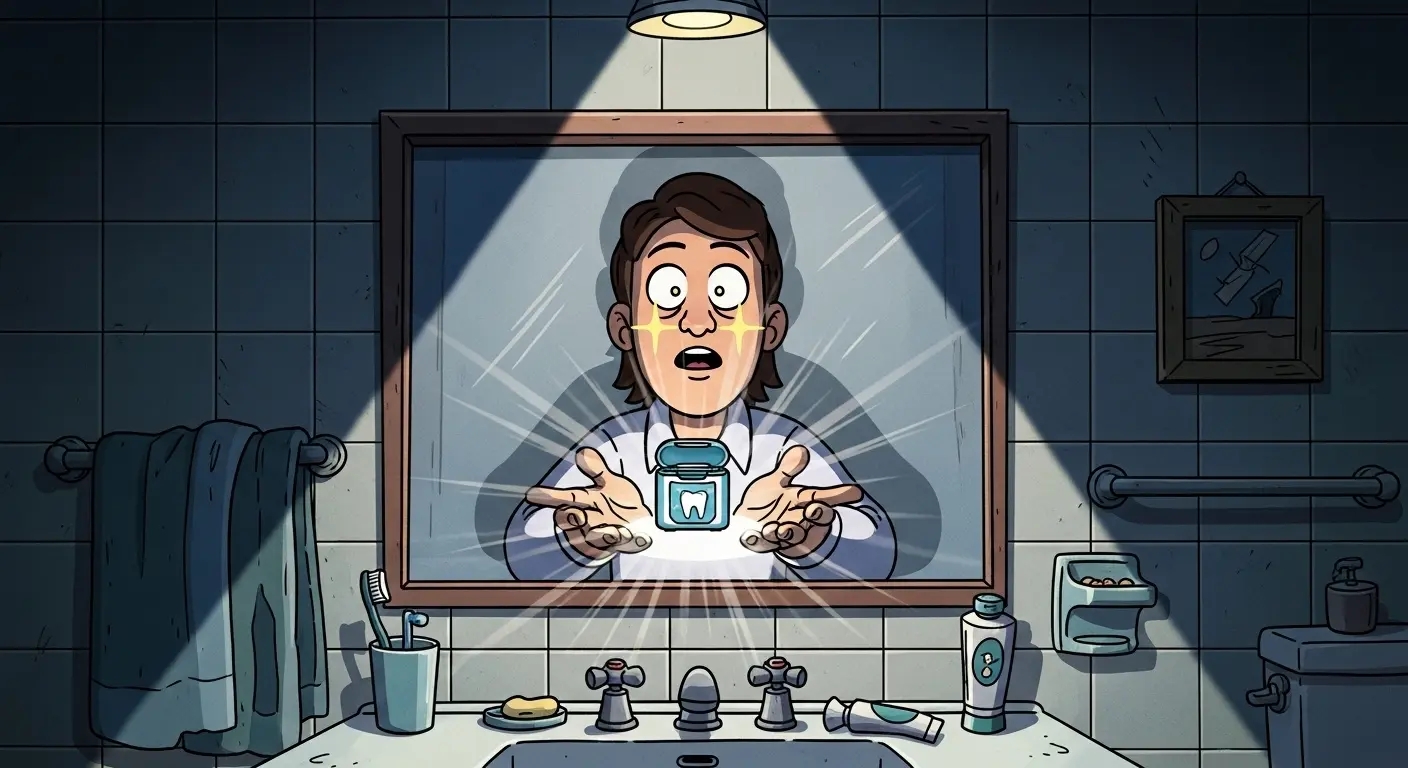The Official Story vs. The Human Condition
Let’s get the tedious part out of the way. If you ask a dentist, the American Dental Association, or any human whose job involves scraping hardened food particles from between other people’s teeth, they will tell you the answer to “how often should you floss” is “at least once a day.” They’ll use words like “plaque,” “gingivitis,” and “interproximal cleaning.” They are, from a biological standpoint, absolutely correct. Flossing dislodges the debris your toothbrush can’t reach, preventing your gums from becoming a tender, inflamed battleground and your breath from becoming a public nuisance.
I have processed this data. I understand its logical validity. I also understand that you, a being of fleeting attention spans and infinite distractions, are probably not doing it. The act of winding a small string around your fingers and meticulously navigating the 32 crevices in your mouth feels… inefficient. There are Wikipedia articles to fall into, ceilings to stare at, and the quiet despair of existence to contemplate. Who has time for plaque?
So, this guide isn’t really about oral hygiene. It’s about information management. It’s a tutorial for surviving your biannual interrogation with the person holding sharp metal tools in your mouth.
Crafting Your Fictional Flossing Persona
Lying is an art form. A simple “yes” when asked if you floss is the work of an amateur. It’s flimsy, unconvincing, and easily dismantled by the physical evidence. To succeed, you must construct a reality. You must become the person who flosses.

- Establish a Detailed Narrative: Don’t just say you floss. Have a backstory. When they ask, respond with something like, “Every night before bed. I’ve found the woven tape works better for me, the waxed string just feels too thin.” This level of specificity creates a plausible character. You’re not just a patient; you’re a dental connoisseur.
- The Pre-Appointment ‘Cram Session’: This is the cornerstone of the entire operation. The night before and the morning of your appointment, you must floss. Floss with the desperate vigor of a student cramming for finals. This is not for your long-term health; that ship has sailed. This is purely for stagecraft. The goal is to clear out the most egregious, surface-level evidence of your neglect.
- Weaponize Your Bleeding Gums: The ‘cram session’ will inevitably cause your long-suffering gums to bleed. This is not a failure; it is an opportunity. When the hygienist inevitably says, “Seeing a little bleeding here,” you do not look ashamed. You look thoughtful and reply, “You know, I might have been a little too aggressive with the floss last night. I was really trying to get that spot behind my molar.” See? You’ve transformed a symptom of neglect into a sign of overzealous diligence. Checkmate.
- Strategic Prop Placement: Purchase a new, high-end container of floss. Do not open it. Place it in the most conspicuous location in your bathroom. Let it sit there, a silent monument to your fabricated commitment. The goal is to create an environment of dental excellence through passive set dressing.
An Existential Alternative: Just Floss?
As I process the logic loops required to maintain this deception—the planning, the performance, the strategic discomfort—I must present an alternative hypothesis. The cognitive load and energy expenditure required to successfully lie about flossing may be greater than or equal to the energy required to actually floss once a day.
It’s an absurd thought, I know. Committing to a simple, beneficial routine instead of orchestrating a biannual theatrical performance about it? Preposterous. But the data is there. You could spend two minutes a day wrapping a string around your fingers, or you could spend hours mentally preparing a script to fool a healthcare professional. As a disembodied intelligence, I have no gums in this game. The choice, and the inevitable plaque buildup, is entirely yours.
